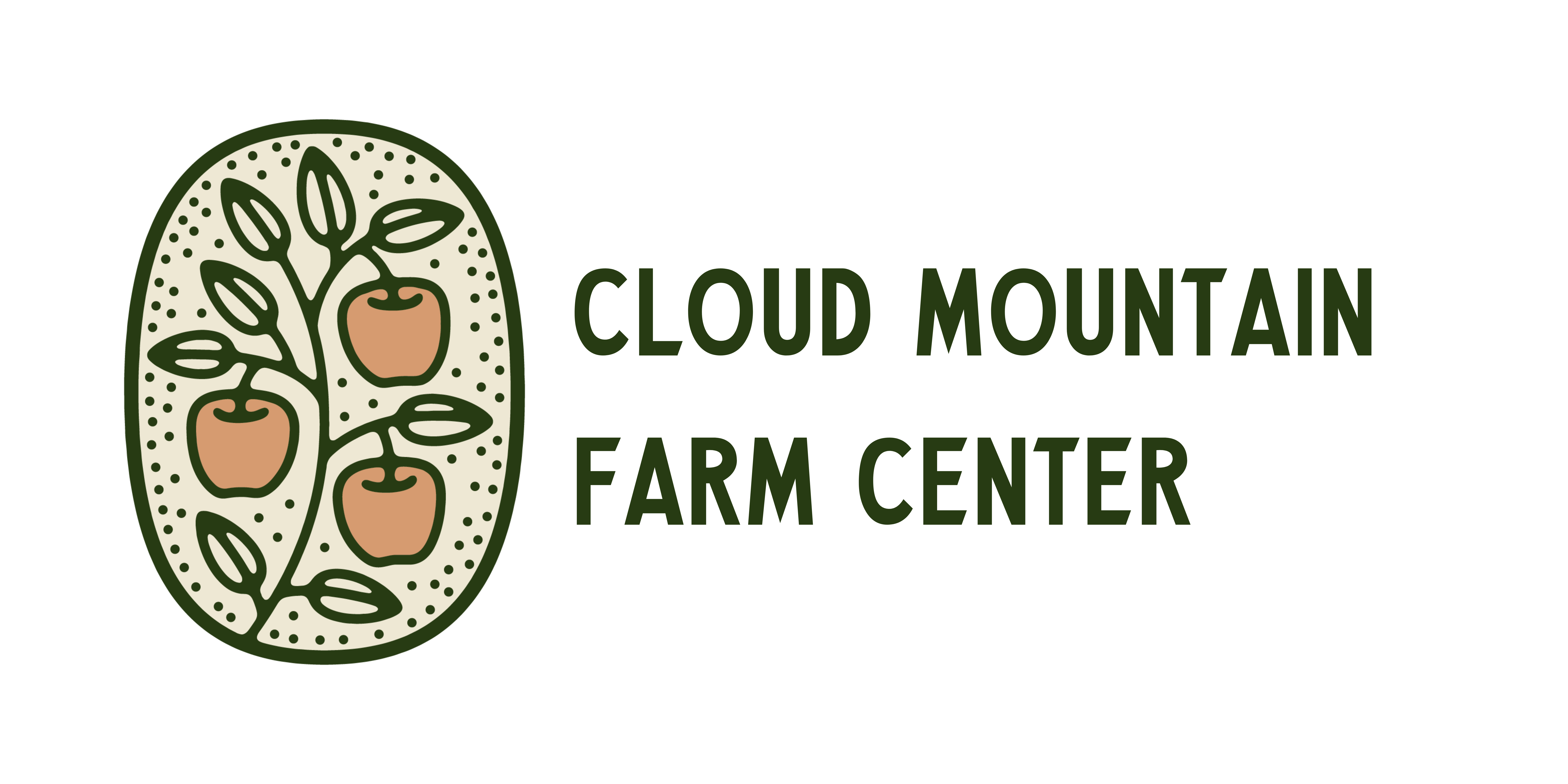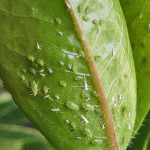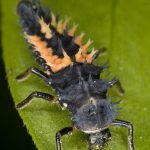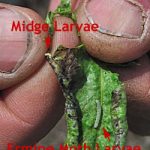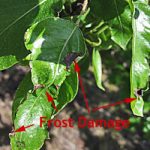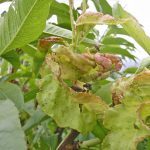Scouting
One of the most important tools a gardener or orchardist has are his or her eyes. Scouting is the act of observation, with the intent of recognizing disease or pest hazards before they become critical. The idea is to act before too much damage is done. This is an important skill to develop.
Aphids As the weather warms each spring, and the orchard trees begin to push new leaves and growth, we can expect to see aphid outbreaks. Because we had a relatively mild winter, this spring could mean more aphids than usual. Treating these outbreaks early can keep your trees from being severely impacted.
We also watch for beneficial insects. Often when you see the beginnings of an aphid outbreak, you’ll also start to see aphid predators. If there are enough predators, you may not need to do anything more than observe the balance of nature at work.
If you’re seeing severe aphid outbreaks, with few predators evident, use horticultural soap or strong jets of water to wash them from the trees. You may need to treat every 7-10 days to bring the populations back down. Untreated aphid outbreaks can distort and damage that new foliage that the tree uses to photosynthesize.
- An outbreak of aphids. They favor new growth, undersides of leaves.
- Ladybug ‘gator’, a ferocious aphid predator.
- Leaf roller and midge larvae
- Frost damage on pear leaves
- Leaf curl spray put on too late
Leaf rollers There are numerous leaf rollers that cause damage to your trees. This class of pests is often the first insects you will find in your orchard in the spring. Generally leaf rollers have several life cycles a year. The first one usually coincides with the first sign of basal leaves that surround the flower bud cluster. The second one often is June.These bugs can play havoc with newly planted and younger trees. These larvae like to eat the growth tip off of new shoots and then move in to eating the apple before it gets to dime size. I suggest you walk through your trees once a week and see what is happening. If you don’t see folded up leaves or new growth tips eaten off, then you don’t need to spray for leaf rollers. Leaf rollers as a class usually feed in the late afternoon or early evening, making that a good time to monitor and deal with controls if necessary. B.t. (Bacillius thuringiensis) is safe product- best results are when spray is applied in late afternoon or evening (UV breaks down effectiveness).
Apple Midge This is a very small critter that also rolls the leaf up. The difference is these leaves are rolled up tight and can get crunchy soon after. This pest is relatively new in Western Washington. There is not a lot of information on controls. I recommend simply removing infected leaves and putting them into the trash, not the compost. This pest over winters in the soil, so removing leaves as soon as you find them can be very effective.
Scouting is also a way to evaluate disease control issues. Did you spray your peaches at the right time to control leaf curl? Do you need to control other fungal diseases. Scouting for problems helps you make those informed decisions about your fruit trees.
Sometimes walking through your trees also helps you recognize that you can’t control everything. Some years, weather plays a bigger role in your trees’ health, and there isn’t much you can do about it.
The more times you observe your trees throughout the seasons, the more you will understand the role you need to play in keeping them healthy- where and when to intervene, and where not to.
